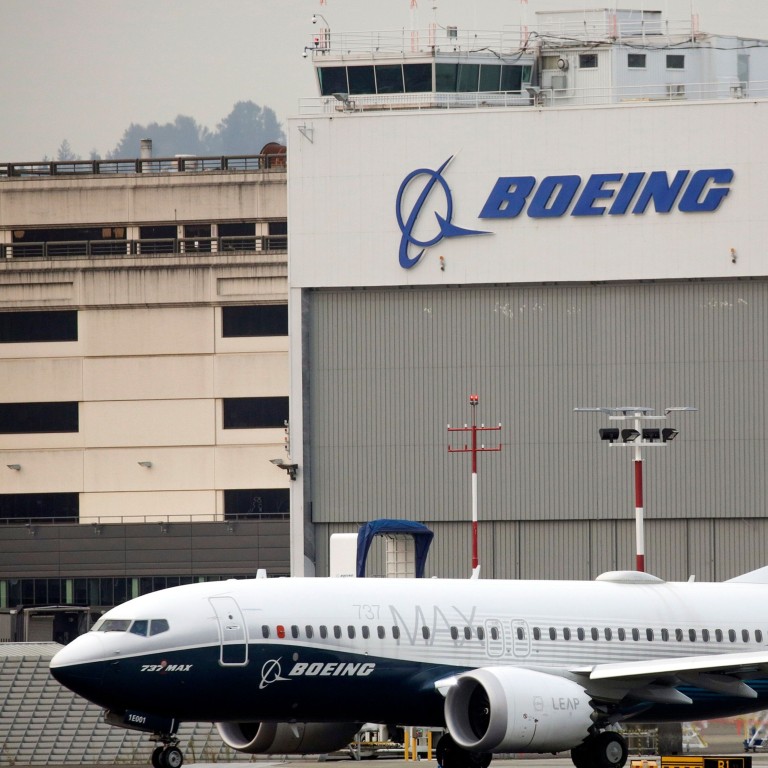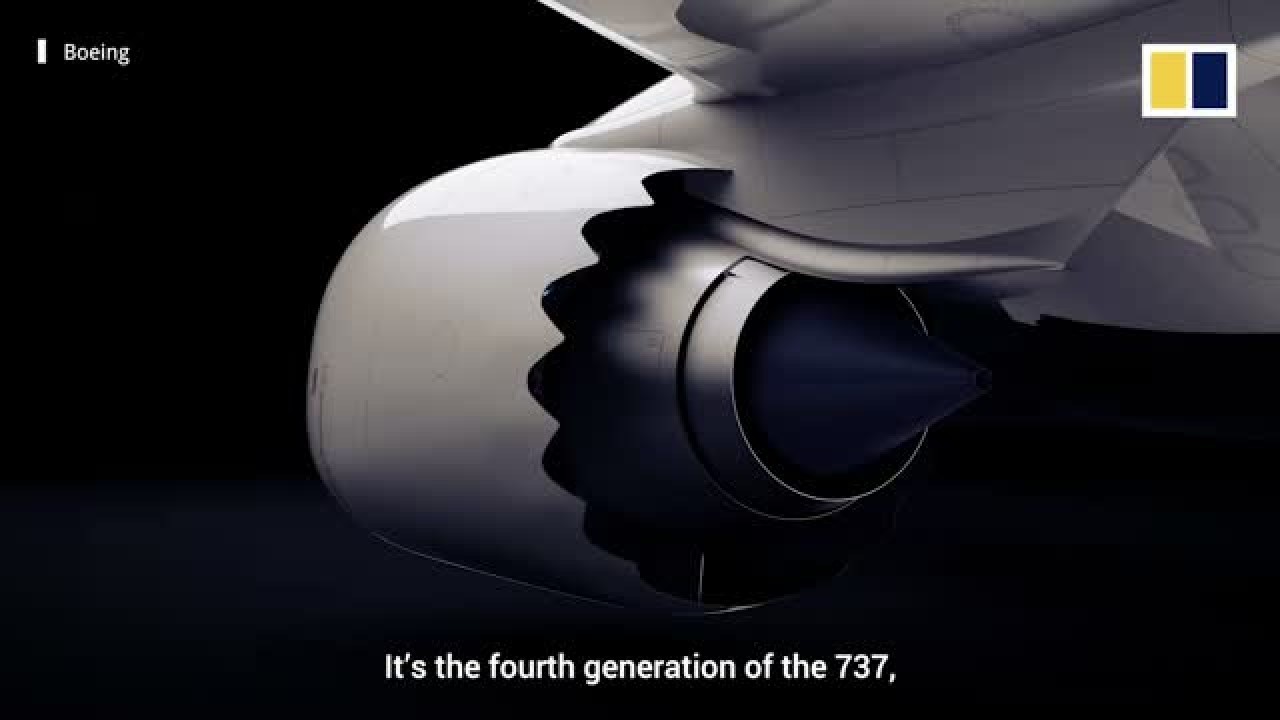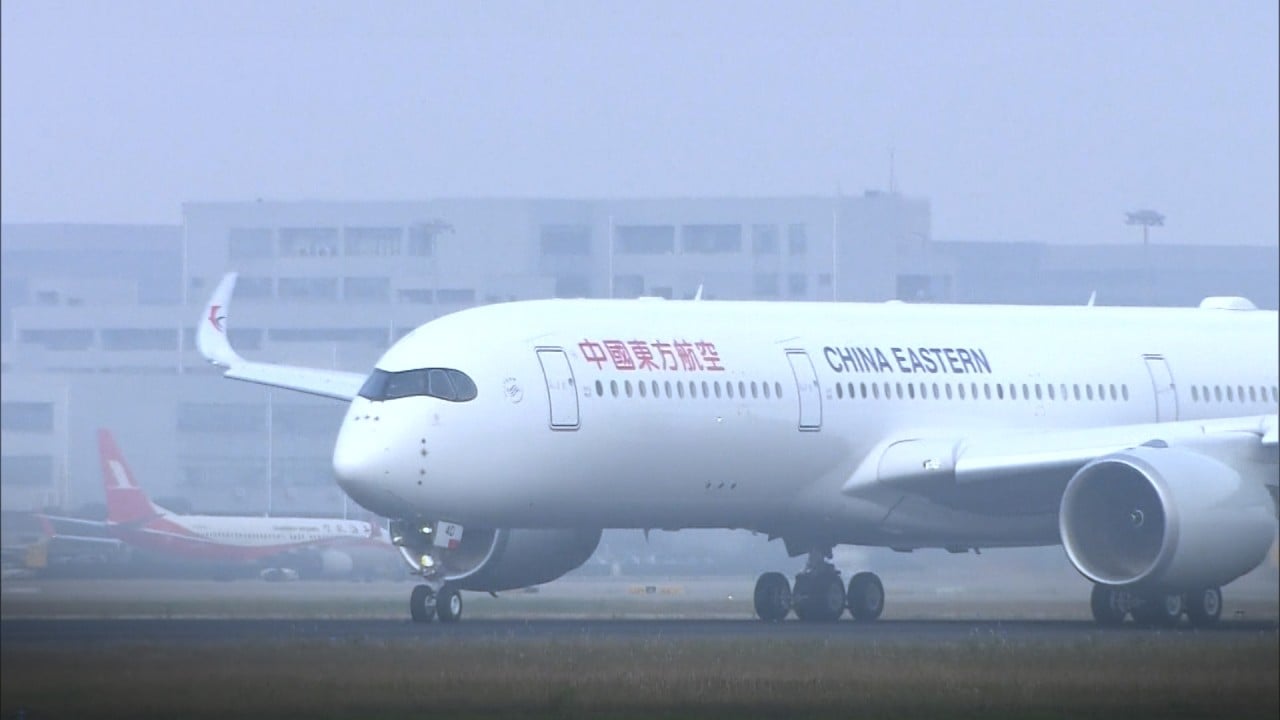
Boeing’s China aviation business in the spotlight after Beijing announces sanctions on defence unit
- China’s sanctions on Boeing Defense do not include penalties on the firm’s commercial aviation business, but analysts say Beijing is ‘sending a message’
- US-China friction could affect Boeing’s share of China’s civilian aviation market, but strong demand for passenger jets means purchases are likely to continue for now
Aerospace giant Boeing is under the spotlight in China, the world’s fastest growing aviation market, after Beijing said it would sanction the Chicago-based firm’s defence subsidiary over arms sales to Taiwan.
The Chinese government, which did not specify penalties on the companies, has long opposed the United States supplying the self-ruled island with arms.
While Boeing’s commercial aviation business is not being targeted in the sanctions, growing diplomatic tensions between Beijing and Washington, which have spilled over into trade and technology, do not bode well for the world’s biggest aerospace company.

02:15
Fear of flying: troubled start for Boeing’s new 737 MAX series jets
Analysts have said Chinese airlines may opt to buy aeroplanes from Airbus, Boeing’s chief rival, in the future. Geopolitical frictions might also create a more favourable environment for China’s own narrow body passenger jet, the Comac C919, which is being developed to compete with the Boeing 737 and Airbus A320.
“Since US companies are basically prohibited from selling weapons to China, there’s no immediate impact from the Chinese sanctions on the three companies’ business,” said Richard Aboulafia, vice-president of analysis at aviation and defence consultancy Teal Group.
“But the People’s Republic of China is clearly trying to send a message, and the next major step is clearly away from US jetliners and towards Airbus and other European systems.”
China does not distinguish between governments and companies, “so these companies might continue to be penalised for US government decisions,” Aboulafia added.

01:57
Chinese airlines offer unlimited flights to coax travellers back as Covid-19 crisis is under control
Boeing on Wednesday reported its fourth straight quarterly loss and announced it would cut more jobs as the coronavirus pandemic and the grounding of its 737 MAX continued to hit its revenue.
The aerospace giant reported a net loss of US$466 million in the third quarter, well below the profit of $1.2 billion a year earlier. Sales stood at $14.1 billion in the latest period, down 29 per cent from a year ago.
China, which is among Boeing’s biggest markets, was the first country to ground the 737 MAX in March 2018 following two crashes that killed 346 people, and has since cancelled orders of the jetliner.
The Civil Aviation Administration of China said last week it had not set a timetable for the plane’s return.
Luya You, a transport analyst at brokerage Bocom International, said US-China frictions could affect Boeing’s share of China’s civilian aviation market, but strong demand for passenger jets meant purchases were likely to continue.
“We may see reduced overall orders of Boeing aircraft versus Airbus, though that would be partially impacted by [737] MAX issues and cancellations,” You said. “But it’s difficult to say at this point if Chinese carriers will entirely disengage from all Boeing orders.
“The reason is that the Chinese domestic market will still be highly reliant on new aircraft over the next decade, and aircraft supplies are still highly limited.”
The US plane maker estimated in 2019 that China would need 8,090 new planes by 2038.
In response to the sanctions, Boeing said in a statement it remained committed to its long-term partnership with China.
China is building its own aircraft manufacturing industry and has the advantage of a large home market, but it doesn’t have the global presence of after-sales service or spare [part] support which Airbus and Boeing offer
“Boeing has worked together successfully with the aviation community in China for almost 50 years to support Chinese efforts to ensure a safe, efficient and profitable aviation system to keep pace with the country’s rapid economic growth,” the firm said.
John Strickland, director of the aviation consultancy JLS Consulting, said he expected the Chinese government to wait for the outcome of the US election next week before assessing Boeing’s future in the country.
“China is important to Boeing, as Boeing is important to China,” he said.
“China is building its own aircraft manufacturing industry and has the advantage of a large home market, but it doesn’t have the global presence of after-sales service or spare [part] support which Airbus and Boeing offer.”
China’s foreign ministry did not outline how Boeing Defense, Lockheed Martin and Raytheon would be sanctioned, but Beijing could restrict their business with Chinese companies or target individuals involved in the Taiwan deal, Zhang Yihui, a researcher with National Institute for Global Strategy at the Chinese Academy of Social Sciences (CASS), said early this week.

